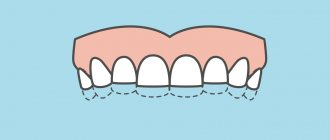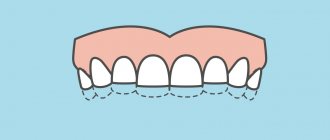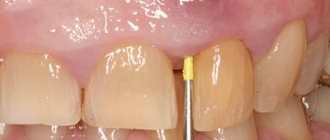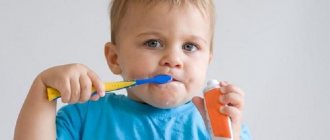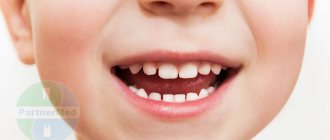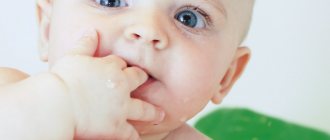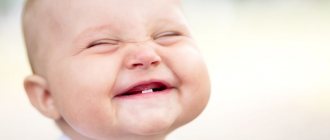Many children sometimes grind their teeth at night, frightening their caring parents. Some babies can grind their teeth for several minutes, others make isolated grinding noises. This phenomenon is medically called bruxism. Let's figure out whether this is dangerous to health, and what reasons can provoke this condition.
Very often, the fact that a child grinds his teeth in his sleep is explained by the presence of worms. Many parents, as soon as they hear that their child is making characteristic sounds, immediately run to the pharmacy and buy drugs that help get rid of helminths. But more often than not, such actions are not able to lead to a positive result, since the opinion about the presence of parasites is most often a common misconception. Even if you have any suspicions that your baby may have intestinal parasites, it is better to consult a doctor, submit the necessary results and wait for his findings. Remember that uncontrolled use of anthelmintic drugs is not as safe for the body as it seems at first glance. When such drugs enter the baby’s body, they not only have a toxic effect on parasites, but also on other cells. In addition, in most cases, children grind their teeth in their sleep for completely different reasons.
Minor defect?
Grinding of teeth in a child may seem like a minor deviation from the norm only at first glance. It’s good when this phenomenon is temporary and at the age of 5–6 years, bruxism in a child goes away on its own. But if your first-grader continues to grind his teeth at night, don't hesitate to seek medical help. Otherwise, even the permanent teeth that will replace the milk teeth will be at risk.
What is bruxism
Bruxism is a condition in which a person involuntarily (uncontrollably) clenches their jaws tightly and begins to make repetitive movements with them. Friction is created between the teeth, which is accompanied by grinding (creaking). In most cases, children are susceptible to this disease. According to statistics, the maximum incidence occurs in the age periods from 1 to 5 and from 13 to 18 years. As a rule, the condition is short-lived and passes quickly. But it happens that the disease becomes chronic and then can cause significant harm to the condition of the teeth, dental system, psyche and health in general.
Symptoms of childhood bruxism
- Headache in the morning
- Feeling of fullness in the ears
- Complaints of pain in the back
- Unmotivated irritability and tearfulness
- Restless sleep with frequent crying
- Lack of appetite
- Rapid tooth wear (this symptom can only be determined by a dentist during an examination!)
Attention!
A high temperature and grinding of teeth in a child may be a reaction of the body to a routine vaccination carried out the day before.
Causes.
The causes of bruxism are not fully understood. According to most researchers, bruxism more often occurs in people experiencing stress, psychological disorders that lead to internal anxiety, anger, tension, and an excited state before bedtime. In addition, the causes of bruxism can be sleep disorders, namely somnambulism, enuresis, nightmares, snoring and periods of respiratory arrest during sleep.
As a rule, the diagnosis is established on the basis of anamnesis. The patient may complain, in addition to teeth grinding, of muscle and joint pain in the lower jaw. The diagnosis can be confirmed using a polysomnographic study, which records the contraction of the masticatory muscles. Polysomnography is also important to exclude epilepsy as a causative factor of bruxism.
Causes of teeth grinding in children
Switching to artificial feeding
Teeth grinding in a child aged 8–10 months may be associated with early weaning from the mother's breast. This is extremely stressful for the baby. According to statistics, it is male “artificials” who most often suffer from bruxism. In this regard, increased attention should be paid to ensuring that the baby receives breast milk in full for as long as possible. To do this, the mother is advised to maintain a drinking regime, regularly express excess milk and avoid worries.
Teeth cutting or changing teeth
Teeth grinding during the day, which parents can notice by a specific sound, usually appears after the eruption of another baby tooth. The child is simply curious about new sensations, and he “plays”, deliberately creating friction between the teeth. As a rule, he quickly gets bored with this, but years later, when baby teeth are replaced with permanent ones, the picture may repeat. Read more about teething in this article.
Dental pathologies
When a child turns one year old, teeth grinding may indicate the presence of some abnormalities in the functioning of the dental system. An incorrect bite, inflammation of the jaw or pathological development of the joint are reasons to “grind” in order to more conveniently position the teeth in the mouth. Only an orthodontist can determine the specific cause. Read more about this here.
Stressful situations
If the day has come and a child of 2–3 years old does not stop grinding his teeth, this is a signal of a problem in his nervous system. In this way, the baby reacts to the stress he has experienced. The trigger for this can be both strong negative emotions (separation from a favorite toy, starting a visit to kindergarten or “eviction” from the parents’ bed), as well as positive ones that lead to strong overexcitation (outdoor games, the arrival of relatives with other children, etc.) .
Sleep disturbance
If a child has difficulty falling asleep, snores, mumbles in his sleep, suffers from enuresis or somnambulism, this may cause teeth grinding at night. Inadequate sleep negatively affects the child’s body and is a trigger for spasms of the masticatory muscles. The task of parents is to ensure that the baby gets enough sleep.
Wrong diet
Sometimes the reasons for teeth grinding in a child’s sleep lie on the surface - the parents themselves are responsible for this, having failed to create an optimal feeding regime. In order not to provoke involuntary contractions of the masticatory muscles, the last meal should be completed 2 hours before going to bed. Kefir is allowed 1 hour before bedtime.
Avitaminosis
Are you looking for reasons why your child grinds his teeth during the day? Analyze how much vitamins and minerals he receives from food during breakfast, lunch, afternoon snack and dinner. A deficiency of B vitamins, coupled with insufficient intake of magnesium and calcium into a growing child’s body, can lead to overstrain of the masticatory muscles. Only a pediatrician should determine the required dosage of a particular vitamin after an examination.
Upper respiratory tract diseases
Coughing and grinding of teeth in a child along with nasal congestion are a characteristic manifestation of sinusitis or bronchitis. In this case, bruxism will go away as soon as the disease that caused it is cured. If you notice that your cough does not go away, despite all the traditional measures taken to combat it, then do not delay a visit to an infectious disease doctor.
ENT diseases
Grinding of a child's teeth at night is also one of the main symptoms of adenoiditis - inflammation of the tonsils. The complex of unpleasant sensations caused by an increase in the size of the adenoids literally forces you to grind your teeth. The first thing that should alert parents in this situation is a constantly slightly open mouth.
The famous pediatrician Komarovsky claims: bruxism in children is more likely to occur if their parents suffered from it in childhood!
Bruxism: 3 steps to successful treatment
As a rule, the patient notices that he has clenched his jaw tightly only at the moment of awakening. Relatives may report a quiet grinding sound from clenched teeth, but sometimes attacks of bruxism are not heard.
“The symptom does not cause any particular inconvenience, and many do not see a doctor for years. Meanwhile, the teeth are gradually rubbing against each other,” comments orthopedic dentist Denis Vladimirovich Ovchinnikov.
What is bruxism? This is a spasm of the masticatory muscles. The problem is very common: chronic bruxism occurs in 5-10% of the adult population.
Night cramps are caused by nervous tension and aggravated by pathology of the dental system. That is, the main reason is stress. Overwork, chronic lack of sleep, and information overload lead to an increase in cases of bruxism among city residents, including young people.
The second group of reasons is associated with improper closure of teeth.
Neurological and osteopathic causes of teeth grinding are also less common. Bruxism can be caused by poor nutrition: lack of calcium or magnesium.
Consequences:
- The teeth are severely worn out, the bite decreases;
- Fillings and crowns chip and break;
- Teeth become sensitive and mobile;
- Facial aesthetics deteriorate: a fold appears near the lips, a sloping chin;
- Headaches and muscle pains (neck, shoulders, back), pain in the jaw joints, and insomnia occur.
Which doctor should I contact?
Contact your orthopedic dentist to find dental causes or catalysts for bruxism:
- Bite disorders
- Incorrectly installed crown or filling
- Missing 1 or more teeth
Most likely, you will need to visit a therapist (not a dental therapist, but a local doctor). He will identify the cause of the disease and refer you to a specialized specialist: a neurologist, osteopath or psychotherapist, or help you adjust your diet.
Using a facebow
and articulator before installing crowns reduces the risk of bruxism
The doctor in the photo -
orthopedic dentist Denis Vladimirovich Ovchinnikov
Completing T-scan diagnostics
On the monitor, tall bars indicate supercontact points.
Treatment of bruxism. Step 1 – Protecting Your Teeth
To prevent teeth from being worn down by high loads, it is recommended to wear a special protective mouthguard at night. They are made in dental laboratories from soft plastic or rubber, and strictly according to the shape of the patient’s jaw. This makes them comfortable and discreet to wear. There are self-adjusting bite trays made from water pads, this is also an effective method.
What does a mouth guard do:
- Does not allow teeth to wear out;
- Protects teeth from displacement;
- Reduces the load on the facial muscles;
- DOES NOT eliminate the cause of the disease, DOES NOT treat the consequences of tooth wear.
“Wearing a mouthguard relieves the symptoms of bruxism and the headaches it causes. But the mouthguard does not remove the cause and should be used in combination with other treatment methods ,” warns orthopedic dentist D.V. Ovchinnikov.
Step 2 - eliminating the cause
You will not be able to cope with bruxism on your own. A doctor's help is needed.
Treatment is prescribed depending on the cause. Most often, an integrated approach is used: a combination of psychotherapeutic, medicinal, and dental methods.
- Correcting the bite with braces or aligners.
- Dental prosthetics: in some cases, remaking a low-quality prosthesis eliminates the problem completely.
- Consultation with a psychotherapist or psychologist: to learn ways to unload the nervous system.
- Drug treatment: taking antidepressants, sedatives, B vitamins, ascorbic acid, calcium, magnesium. Sometimes anti-inflammatory drugs are required.
“Patients 30-40 years old come in with worn-out teeth and a reduced bite like a 60-year-old. They spend money on a facelift to avoid sagging cheeks, and bruxism aggravates the problem every year ,” says Denis Vladimirovich.
A quick and mandatory method of helping with bruxism is the elimination of supercontacts, that is, points of increased stress. There the teeth close first and begin to press on each other before the rest close. If a tooth has shifted, tilted towards its lost neighbor, or an uncomfortable filling or denture has been placed, a supercontact point appears.
The body unconsciously tries to get rid of supercontact, to erase this bump. But while this happens, other teeth and the jaw joint will suffer.
An orthopedic dentist can identify problem areas using special sensory equipment, if the clinic is equipped with one. With an ultra-sensitive sensor, it finds supercontacts smaller than the thickness of a human hair. So the doctor determines not only their location, but also the degree of load on each.
Supercontacts are removed by grinding. After this, the patient immediately feels improvement.
Step 3 - correcting the consequences
After eliminating the cause of bruxism, you can move on to restoring your teeth. With low abrasion, procedures to strengthen the enamel are sufficient. In more advanced cases, restoration with photopolymer or dental prosthetics is required.
If you delay the treatment of bruxism for several years, the teeth will be severely worn, the bite will decrease, and total dental prosthetics will be required.
High-quality dentures can not only protect worn teeth from destruction, but also compensate for lost bite height. The shape of your face will become more aesthetic and toned.
“I emphasize. If you manage to catch a patient with bruxism in the early stages, grinding the teeth, remineralization and a course of mild sedative will be enough. If the situation gets worse, it will require expensive complete prosthetics of all teeth, and possibly treatment of problems with the jaw joint and cervical spine.” Ovchinnikov D.V.
The only way to prevent bruxism is to regularly monitor the health of your teeth and nervous system. Get more rest and consult a doctor in a timely manner for preventive examinations and treatment, including orthopedic.
Orthopedic dentist Denis Vladimirovich Ovchinnikov has been dealing with the problems of bruxism, tooth abrasion and occlusion disorders since 1995. The doctor sees patients at the CosmoStom branch on Volochaevskaya street 19/1.
What to do if your child grinds his teeth?
- The first step is to make an appointment with a dentist and pediatric neurologist. The first will give practical recommendations on how to prevent enamel wear, the second will determine why the child has teeth grinding.
- Monitor the psychological microclimate in the family. The child should be honest about his worries and be sure that he will receive help from his parents.
- Adjust your daily routine. An hour before going to bed, the child should be occupied with a calm activity to avoid overstimulation of the nervous system.
- Balance the children's menu. The daily diet should include solid vegetables and fruits - the load on the masticatory muscles during wakefulness will lead to their relaxation during sleep.
- Teach self-control. In the form of a joint game, practice every day following the simple rule: “Lips are closed, teeth are apart.” This way, the baby will not form the bad habit of clenching his teeth during the day, even at the moment of strong excitement.
What is bruxism and why is it dangerous for adults and children?
Unconscious clenching of teeth, as well as the appearance of grinding, is called bruxism in medical terms.
What is this - a bad habit or a signal warning of the occurrence of any diseases? Bruxism is not fatal, but can cause serious illness. The chewing movements characteristic of this phenomenon can usually be noticed during sleep, which causes greater stress on the temporomandibular joint. As a result, the enamel is damaged and the teeth become abraded and loosened. Also, teeth grinding has a negative effect on a person’s joints, muscles, and nervous system and interferes with the normal sleep of others.
Prevention measures
Of course, when a child grinds his teeth, parents are interested in whether it is possible to somehow prevent the development of the disease? Unfortunately, today there is no specific prevention of bruxism. But if you follow simple rules, it is quite possible to minimize the risk of its occurrence.
- Pay attention to hygiene
The banal advice is not without common sense. Judge for yourself: a common cause of bruxism is a defensive reaction to the eruption of a new tooth. During the process, the gums become inflamed and mild itching may occur. It is advisable to give your child special teethers made of safe materials so that he does not rub his teeth against each other. Also, do not ignore brushing your teeth with special fingertips.
- No stress!
Do you want your child to avoid grinding his teeth all night long and then all day long? Eliminate any nervous stress from his life. It is generally accepted that only what happens directly to him can have a negative impact on the baby’s psyche. In fact, your quarrel with your spouse or a loud conversation on the phone with a work colleague can negatively affect his mood.
- Fight bad habits
Today, any doctor will tell you that the causes of teeth grinding are both an incorrect bite and a fixed pathological reflex, for example, sucking a pacifier to calm down in a stressful situation. Therefore, it is worthwhile to gently but decisively fight childhood bad habits and promptly consult an orthodontist if necessary.
Causes of the disease
There is no single point of view on the origin of the disease. The leading links in developmental mechanisms (genetic, neurological, endocrine) have not yet been sufficiently studied.
It is believed that the main role in the formation of adolescent bruxism belongs to a violation of nervous regulation caused by stress and maintaining a state of mental and emotional tension. An imbalance of stress hormones increases the convulsive readiness of the brain, disrupts sleep structure, and leads to hyperactivity of the masticatory muscles. Unfavorable backgrounds include birth, traumatic brain injury, heredity, and severe neuroinfections.
What kind of phenomenon is bruxism?
Oscar [email protected]
During sleep we must rest.
Our chewing muscles should also rest - their work is completely unnecessary during sleep.
But sometimes the chewing muscles suddenly begin to work during sleep, forcing a person to clench his jaw or grind his teeth.
This is bruxism .
It usually occurs at night, although daytime bruxism also occurs occasionally.
Episodes of bruxism usually last about 4 seconds and can occur 5-6 times per hour of sleep.
Treatment
So, does bruxism need treatment? Although bruxism is not a disease, it is an undesirable condition that needs to be corrected. The only reliable way to rid a child of teeth grinding is to eliminate the causes of this phenomenon. What measures can be taken for this?
- First of all, it is necessary to make sure that bruxism in a child is not stressful, neurological (neurogenic) in nature. Normalize the emotional background in the family, find out what worries the baby and causes him inconvenience.
- Prepare your child for bed in advance. At least two hours before evening sleep, try to stop all active games. Of course, this must be done with all delicacy; hysterics are not the best substitute for active games. Read a story to your child just before bed. The calmer the child goes to bed, the less likely it is that bruxism will occur due to anxiety.
- Make sure your baby gets enough calcium in his diet. Products rich in calcium are, first of all, cottage cheese, cheese, and fermented milk products. Perhaps the child’s diet needs to be reconsidered.
- Also, foods that stimulate the nervous system - tea, coffee and chocolate - should be removed from the evening feeding diet. Naturally, until the age of two, a child should not receive these products at all.
- Visit a gnathologist to examine your jaw joints for inflammation.
- Sometimes grinding your teeth while you sleep can cause premature wear of tooth enamel. Order a mouth guard from your dentist. A mouth guard is a protective “cover” for teeth, made individually based on an impression of the child’s dentition. This simple device will not only save tooth enamel, but also help maintain the correct bite. The mouthguard is made of soft, elastic material and does not cause discomfort. It is recommended to use a mouthguard for children over 10 months of age.
- You can reduce the hypertonicity of the masticatory muscles using a regular heating pad filled with warm (not hot!) water. The baby should apply a heating pad shortly before bedtime to the jaw joint area.
- You can also protect tooth enamel using folk remedies: lubricate your baby’s teeth with vegetable oil, preferably rapeseed oil, before bed.
- It is also recommended to give your baby a hard apple or carrot to chew before bed. But this can be done only if bruxism is not associated with inflammation of the jaw joint.
If no remedies help, and the problem is serious and threatens complications, the baby may need drug treatment. For drug therapy for bruxism, two groups of drugs are used:
- Antidepressants - reduce stress on the nervous system and relieve stress.
- Muscle relaxants - relieve hypertonicity of the masticatory muscles.
Remember! Medications are used only as prescribed and under the supervision of a physician.
Lifestyle and home remedies –
These self-help steps will help prevent or reduce bruxism...
- Reduce stress – listening to music, taking warm baths and any other pleasant little things will help you relieve stress, and thus reduce the psychological component of the cause of bruxism.
- Avoid stimulants in the evening - do not drink caffeinated coffee or tea after lunch, avoid alcohol and smoking in the evening, because. they can make bruxism worse. Try to avoid drinking sugary carbonated drinks (Cola, Pepsi, etc.), as well as chocolate.
- Get enough sleep - a good night's sleep will help reduce the symptoms of bruxism.
- Heat compresses - before going to bed, use a heating pad to apply heat compresses to the muscles of mastication (these are those located in front and below the ear, outside the branch of the lower jaw). This will allow them to be relaxed at night.
- Avoid bad habits - try not to chew a pencil/pen, do not chew chewing gum, because... all this stimulates the tone of the masticatory muscles. It is very important to train yourself not to clench your teeth too hard during the daytime. If you notice that your teeth are clenching excessively, then try to keep the tip of your tongue between your teeth while pursing your lips. This practice trains the jaw muscles to relax.
Symptoms and signs
An important question for parents is how can you tell if your child is suffering from bruxism? If we are talking about babies, then the answer is obvious: bruxism will be indicated by a characteristic sound - grinding, rustling or clicking. A child as young as 9 months may already have enough teeth to make a grinding sound.
It should be borne in mind that the sound of teeth grinding during bruxism may not at all resemble the sound that people make voluntarily. An involuntary grinding sound in a dream may be similar, for example, to the chirping of nocturnal insects.
In older children (2 years or more), it is more difficult to identify bruxism, since at this age children begin to sleep separately from their mother, perhaps even in another room, so the characteristic sound may simply not be heard. In this case, you need to pay attention to the child’s condition in the morning. A marker for parents can be the fact that the baby is capricious in the morning and shows signs of dissatisfaction and poor health. Of course, morning whims in themselves are not a sign of bruxism, but this is undoubtedly a signal, upon which parents need to look into the nursery more often in the evening and at night.
Observe your child during the day - teeth grinding, although to a lesser extent, may not occur during sleep.
Daytime bruxism can also be expressed in unconscious gnawing of various objects and toys.
What causes bruxism?
The following predisposing factors are known:
- sleep disorders - parasomnias and obstructive sleep apnea, sleepwalking, sleep talking, and nocturnal enuresis
- anxiety and other mental and neurological disorders (Down syndrome, cerebral palsy, attention deficit hyperactivity disorder (ADHD). Moreover, the mother’s condition is also very important - there are scientific works where they found a connection between bruxism and maternal depression
- some medications, in teenagers - caffeine, smoking and alcohol
- enlarged adenoids and tonsils, which also lead to mouth breathing during sleep, snoring and sleep apnea. In children who had to have their adenoids and tonsils cut (surgery “adenotonsillotomy”), 3 months after the operation, not only a significant improvement in nasal breathing was described, but also a decrease in bruxism.
- family predisposition
- reflux disease
Therapy methods
Treatment of a disease is primarily aimed at eliminating the causes that caused it. For example, if bruxism is caused by neurological problems, then the neurologist prescribes appropriate medications. The dentist takes symptomatic measures. These include wearing a special plastic mouth guard placed on the lower jaw at night. It is designed to prevent teeth from rubbing against each other. Treatment of caries and periodontal disease (if any) is also carried out. If occlusal defects are present, orthodontic therapy is prescribed.
